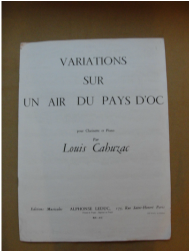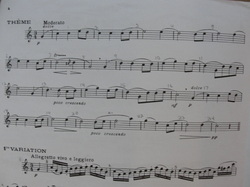 I learned France is more than just Paris and the Eiffel Tower.
I learned France is more than just Paris and the Eiffel Tower. Before coming to France, the longest I had lived in a "foreign" culture was five months when I traveled with a music and relational ministry team around South America. Even though this was a significant and formative experience, we were living in host homes and changed locations on average weekly. I could never "settle in."
In Toulouse, I had an address and the opportunity to establish myself as a resident of the city. Even as a foreigner, I had a sense of belonging.
We often talk about how we made a mark on a place, but in this post, I want to talk about how this place and country made its mark on me.
So how did I change? I'm sure I have yet to note all the ways. Besides the obvious differences like speaking the language and knowing more about French cuisine, here is a short list of the differences I am aware of:
1. I don't drive. It has been more than 10 months since I have driven a car. Crazy, right? Europe has a great public transportation system, and Toulouse is no exception. I learned landmarks and gave directions in relation to metro stops. With the lack of parking (and necessity of parallel parking if you do find a spot), I appreciated using my own two feet when I could. I also had a bike card where I could check out a bike from one station and return it to another. Covoiturage or carpool was also my friend and a great way to meet new people and get where I needed to go.
2. I value quality over quantity. Most of you know that I am a recovering bargain hunter. I still love a good deal (and free stuff). However, I now look for signs of quality (like looking to see if a bottle of wine was bottled on the property or seeing whether a cheese was made with pasteurized or raw milk). Not having a car, I adopted French habits of buying less more often. Having a collection of 50 cereal boxes was no longer realistic. My pantry consisted of a few packages of pasta and rice, spices, a box of cereal and oatmeal, and a few baking staples.
3. I buy more freshly and directly. One-stop shopping is synonymous with the United States. In France, I learned to buy my fresh fruits and vegetables from the market, my meat from the butcher shop and my bread from the bakery. I appreciated eliminating the "middle man" when possible and having a more relational buying experience. And let me tell you – fresh is better! I only bought a few bags of frozen vegetables for the times that I couldn't make it to the market.
4. I take more time. I used to think it took forever to get anywhere. Now I am used to budgeting an extra half-an-hour on each side of an errand. It is normal. I make more meals from scratch (microwaves are just for reheating leftovers), and I expect lunch to take at least an hour and dinner to take at least two hours. I still value efficiency, but with the realization that I will never get as much done as I would like to each day. And I'm ok with it.
5. I agree to disagree – all the time. I assume when I meet someone that we probably don't share the same beliefs, and it doesn't intimidate me. While I don't volunteer much information up front, I am comfortable expressing my ideas without worrying if someone will be deeply offended and disown me. The French have mastered the art of respectful, intelligent debate, and I am a fan.


 RSS Feed
RSS Feed